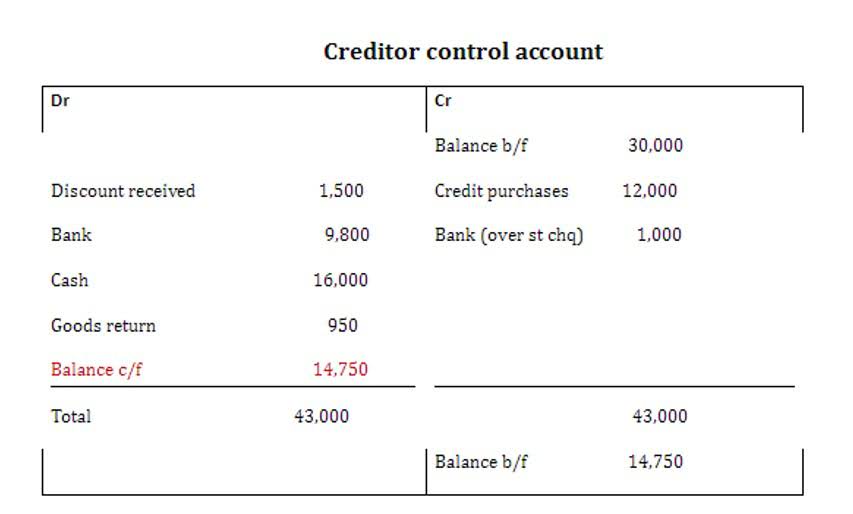Why have I been put on a non cumulative tax code? MoneySavingExpert Forum

A comprehensive test is a complete evaluation of the non cumulative meaning student’s understanding of the entire course or program. These tests frequently need to combine material from several curricular areas to measure a comprehensive mastery of the subject. This article will explain the distinction between cumulative and comprehensive tests.
Deciphering Cumulative Tax Codes
- One of the key advantages of cumulative dividends is that they provide a level of protection for investors.
- Strive to connect various concepts across different subject areas to ensure the best academic performance.
- Understanding cumulative and non-cumulative tax differences is crucial for good tax management.
- We offer personalised services, including Corporation Tax Returns, Business Tax Planning, and Property Tax Advice, to ensure your taxes work for you.
- Engage with fellow students who have prepared for the exam or seek guidance from professors in your field.
- That means her employer has sufficient information to give her any missed personal allowance to date.
- These updates mean that taxpayers and employers must be vigilant in monitoring tax code notices and ensuring that their personal and financial information is up-to-date in the HMRC systems.
Set a timer, create a quiet study environment, and attempt practice exams or questions from different parts of the course. Success on a cumulative test indicates a thorough understanding of the subject matter and the ability to synthesize material from other units. Although these tests might be difficult, they allow students to demonstrate a comprehensive mastery of the subject and contribute considerably to their academic qualifications. A cumulative test evaluates a student’s understanding of the full course content, frequently extending throughout a semester or academic year. Unlike regular assessments, cumulative exam tests need a thorough comprehension of the information covered during the course.
Why would I have a non-cumulative tax code?
- Interactions with HMRC, whether for updating income details or addressing discrepancies in tax codes, can be daunting.
- When it comes to a cumulative vs non-cumulative tax code, the main difference is how tax is calculated.
- It covers a wide range of subjects and demands students to demonstrate their knowledge gained over time.
- In the world of finance, noncumulative refers to an investment that does not allow for missed dividends or payouts to be made up in the future.
- To understand the practical implications of cumulative and non-cumulative tax codes, let’s consider a hypothetical example of an employee named John.
- In conclusion, both taxpayers and employers must have a clear understanding of cumulative tax codes and the role of HMRC in this process.
In short, the dividends that remain unpaid cannot be claimed by the expected recipients. Issuing such stocks is a rare scenario as there is no guarantee for shareholders CARES Act of receiving dividends. In short, this option puts them in an uncertain situation, thereby making it a not-so-worthy stock alternative. For companies, if they do not pay noncumulative dividends, they have to skip paying dividends to common stockholders as well for that particular year.

Accrued Dividends: Cumulative or Non Cumulative: Know the Difference
- Assume that there’s a company named XYZ Ltd. that has issued non-cumulative preference shares to the public.
- While they may not suit every company, understanding their benefits helps investors make informed decisions.
- While they provide security and predictability for investors, they also place additional financial obligations on companies.
- The contents of a cumulative exam is determined by the scope of what you covered in an academic year.
- However, they also introduce uncertainty for investors and can result in lower dividend yields.
This means that if a company fails to pay dividends in a particular period, shareholders do not have the right to demand those unpaid dividends in the future. Companies paying non-cumulative dividends may not have a predictable dividend policy. Their dividend payments can vary significantly from year to year based on the company’s financial performance, cash flow, and management decisions. Shareholders who depend on regular dividend income may find this uncertainty unsettling. Understanding the implications of a non-cumulative tax code is essential for individuals managing their tax calculation on an individual pay period basis. It is crucial to be aware of the potential tax liability when allowances do not accumulate over time.
Example 2
- Learn the meaning, workings, types, and examples of noncumulative finance with our comprehensive guide.
- If these aren’t included correctly in your code, you can pay too little or too much tax.
- This is to guarantee that the students will contribute in-depth and creative ways in addition to just restating the already conducted study.
- In this case, shareholders do not have the right to claim the unpaid dividend in future periods, and the company’s liability for the unpaid dividend is extinguished.
These dividends have their own set of advantages and disadvantages that investors must consider before making any decisions. In this section, we will delve into the pros and cons of cumulative dividends, shedding light on both sides of the argument. Non-cumulative dividends offer companies greater flexibility in managing their cash flows.

However, understanding and ensuring you’re on the correct cumulative tax code can be complex. A personal tax accountant is skilled in deciphering these codes and can help you understand how they apply to your income and tax situation. Navigating the intricacies of tax codes can be daunting for many individuals. They are not only adept at understanding the nuances of various tax codes, including cumulative tax codes but also ensure that you are taxed fairly and in compliance with the laws.
Car Wreck Aftermath: Legal Help for Medical Bills, Repairs, and More

If an investor misses a dividend payment, they simply miss out on that income without the possibility of recouping it in the future. Noncumulative refers to a type of preferred stock for which dividends are not accumulated over time. The company is not obliged to pay noncumulative stockholders any unpaid dividends.

Remember, financial markets are dynamic, and dividend practices vary across companies. Non-cumulative dividends are just one piece of the puzzle, but understanding them empowers investors to make informed choices. Non-cumulative and cumulative Accounts Payable Management dividends are different paths a company can take.

Instead, the shares are effectively the same as common stock, where the issuance of dividends is at the prerogative of the board of directors. Theoretically, investors can indirectly influence the issuance of dividends by electing a different set of directors. Understandably, few companies issue this type of shares, since investors are unlikely to buy them, except at a large discount. Cumulative and non-cumulative tax codes affect how much tax and personal allowance an individual receives in their payslip.


